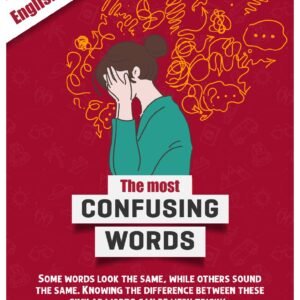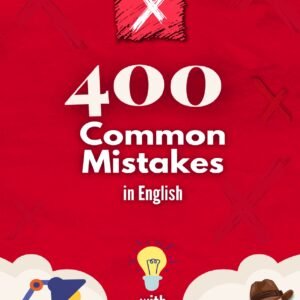Parts of Speech Serie – Noun
Words are referred to as parts of speech. There are nine parts of speech. They are:
- Noun: A word, or group of words, that names a person, place, or thing (object, activity, idea, or emotion) and can be used as the subject or object of a verb.
Examples: father, London, statue, happiness, justice, electricity - Pronoun: A word used to substitute for a noun or noun phrase
Examples: I, me, he, she, it, they, them, we - Verb: A word, or group of words, used to describe an action, an experience, or a state of being
Examples: walk, laugh, chew, create, am, is, are, been - Adjective: A word used to describe a noun or pronoun
Examples: small, beautiful, loud, ecstatic, dejected - Adverb: A word, or group of words, used to describe a verb, adjective, adverb, or phrase.
Examples: briefly, quietly, frequently, obstinately - Preposition: A word, or group of words, used to describe the relationship in space or time or possession of one word or phrase to another word or phrase.
Examples: above, below, in, at, with, from - Conjunction: A word, or group of words, used to link words, sentences, phrases, and/or clauses.
Examples: and, but, or, so, because, although, while, since - Determiner: definite and indefinite articles, demonstratives, and quantifiers that identify, indicate, or quantify the noun phrase.
Examples: the, a/an, this, that, those, these, some, many, few, all of - Interjection: Words used to express emotion.
Examples: wow, um, oh, ah, eh, yay, phew, ugh
1. Nouns
Nouns are used to name people, animals, places, objects, emotions, and abstract ideas. They are the words that babies typically learn first, pointing at objects or people and repeating what they have absorbed.
In English, most nouns can be used to refer to either gender. For example, an accountant, a chef, a teacher, and an engineer can be male or female. While many other languages (French, Arabic, etc.) assign gender to inanimate objects, English does not. This simplifies learning as students need not memorize this additional information. Some words in English are gender-specific, however, such as waitress, steward, and policeman.
Most nouns are pluralized by adding “-s” or “-es” to the end (tables, chairs, brushes). Nouns that change structure in the plural form are known as irregular (children, mice, men).
In this section, we will be discussing countable vs. uncountable nouns, quantifier nouns, collective nouns, compound nouns, and various types of pronouns.
Countable vs. Uncountable Nouns
Nouns that are countable can be transformed into plural form by adding an “s” or “es” to the end. “Es” tends to be added to words that end in “z,” “x,” “ch,” “sh,” and “s.”
- dog – dogs
- grape – grapes
- friend – friends
- coin – coins
- kiss – kisses
- sandwich – sandwiches
- fox – foxes
- dish – dishes
Some nouns cannot be made plural and cannot be divided into separate elements because they are substances that we cannot count:
- music
- art
- luggage
- furniture
- water
- rice
- craziness
- electricity
We cannot say “two musics,” “four rices,” or “three happinesses,” but we can say “two types of music,” “four grains of rice,” and “three instances of happiness.” These are called uncountable nouns and are treated as if they were singular:
- “Your luggage is heavy.”
- “The water is cold.”
- “Art makes me happy.”
Indefinite articles cannot be used with uncountable nouns, such as “a money,” or “an electricity,” even though they quantify a single item. We can only use those articles when they are separated by a countable/measuring noun (piece, can, pot, cup, handful, etc.):
- “A bottle of water.”
- “A bowl of rice.”
- “A piece of art.”
Besides articles, we can also use quantifier nouns with uncountable nouns, such as:
- “That is a lot of furniture.”
- “I have some”
- “There isn’t much water left.”
However, there are a number of words that can be both countable and uncountable, depending on the way they are used (chicken, paper, time, hair, room, sugar, water, soda, etc.). For example:
- I enjoy beer with dinner. → We have three beers in the refrigerator.
- I need to cut my hair. → There were two hairs in my food!
There are some nouns that appear to be plural because of the “s” on the end but are treated as singular nouns (news, acoustics, classics, linguistics, species, etc.).
For example:
- The news is on at five o’clock.
- The human species is the most dominant on Earth.
There isn’t a specific rule about which words are countable and which aren’t. The English language can be illogical, and the only way to learn certain exceptions is through memorization and repeated exposure.
Check the other articles to know the other 8 parts of speech.










It is very helpful for me.
Thank you Nab